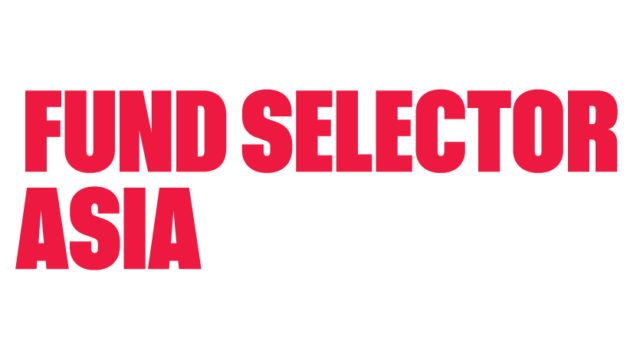Looking at equities in general, the past three years the singular market indices of China, Hong Kong and India have each outperformed the broader Asia-Pacific ex-Japan equity index, said Luke Ng, vice president of FE Advisory Asia.
Looking further inside the China and India markets reveals that small cap indices have outperformed the large cap indices during the same period.
Therefore, it should be no surprise that the top performing funds in the region show a significant allocation to small cap companies.
A look at the comparative rise in small- and large-cap indices:

One factor in performance has been that the expected earnings growth of small-caps in the region looks better compared to large-caps, Ng said.
Hong Kong’s small cap index has lagged the other markets, but that is expected to change. China’s moves to open its markets further to foreign investors will likely provide added momentum.
The launch of the Stock Connect in November last year and the recent announcement about the 1 July launch of the mutual recognition of funds have led to a huge market rally.
The cross-border fund initiative in particular is expected to drive more capital flows into the Hong Kong market due to the more realistic valuations of H-shares compared to the China-listed A-share counterparts.
Sector allocation
Consumer discretionary, financial and information technology companies dominated the portfolios of the top five performing small-cap funds.
The weightings are close to the sector weights in the MSCI Asia-Pacific ex-Japan Small Cap Index, said Ng.
The financial sector has nearly a 20.3% weighting in the index, followed by consumer discretionary (19.6%) and technology companies (15%).
Asia’s top fund by performance over the trailing three years was UOB Asset Managment’s United China-India Dynamic Growth Fund, with a nearly 158% return. Although the fund invests in companies in China and India, it does not primarily target small cap companies.
However, the next five funds ranked by performance were all small cap-focused, according to FE data:
 Data provided by FE
Data provided by FEMacquarie Asia New Stars
The Cayman Islands-based fund had $705m in AUM on 31 May. The fund seeks to capture the potential growth of small- and mid-cap companies. The companies are selected on the basis of qualitative and quantitative investment criteria, which includes screening stocks by fundamental analysis, valuation, momentum and liquidity.
South Korea (22.5%), China (15.8%) and Taiwan (14.4%) and were the top country allocations.
In its latest fact sheet, the firm said the fund is overweight Hong Kong, India, South Korea, and the Philippines, and underweight China, Taiwan and the rest of Southeast Asia.
“[In May], the fund added new Chinese consumer discretionary and industrial stocks as these sectors represent relative laggards post the recent rally in China shares in April.”
The fund remains overweight in consumer discretionary (25.8%), consumer staples, healthcare (14.8%) and telecommunication services.
“With increased uncertainty over external demand and market volatility, the fund remains conservative and owns undervalued companies that grow with local consumption over the long run.
Korea Kolmar, China Taiping Insurance and Hyundai Department Store featured among the top stock picks.
HSBC Asia ex-Japan Equity Smaller Companies
The Luxembourg-domiciled fund with $525.2m in AUM typically invests in stocks with less than $2bn market capitalisation.
In terms of country allocation, China and Hong Kong dominated the portfolio, with 23% and 18.7% weighting, respectively, followed by Taiwan (16.5%).
China Resources, Man Wah Holdings and Ezion were the top holdings.
PineBridge Asia ex-Japan Small Cap Equity Fund
The Ireland-based vehicle invests in companies with market capitalisation less than $1.5bn at the time of purchase.
Hong Kong, China and India were the top country allocations with 23.4%, 21.9% and 10.5% weighting, respectively.
Consumer discretionary (21.6%), industrial (19.9%) and information technology (17.2%) were the largest sector allocations.
Top stock holdings were Largan Precision, Shenzhou International and Domino’s Pizza.
Fidelity Asian Smaller Companies Fund
The Luxembourg-based product invests in companies with a market capitalisation less than $2.5bn. The fund had $207m in AUM on 31 May and had highest allocations to China (15.6%), India (13.3%) and Australia (11.2%).
In terms of sector orientation, consumer discretionary, financial and information technology companies accounted for 32.3%, 14.7% and 11.1% weighting, respectively.
Top stock holdings included names like Slater and Gordon, Religare Health Trust and International Houseware.
Manulife Asian Small Cap Equity
The Luxembourg-based vehicle had $461.2m in assets on 30 April.
China (29.6%), Taiwan (13.9%) and Korea (13.4%) were the top country allocations.
The fund favours allocation to information technology, consumer discretionary and industrial sectors which had 24.4%, 22.4% and 16% weightings, respectively.
Wasion Group Holdings, Fufeng Group and PAX Global Technology were the top holdings.
Linda Csellak, head of Asia-Pacific equities, recently said in an interview with FSA that she finds innovative business models in Korean and Taiwanese small cap companies.

















